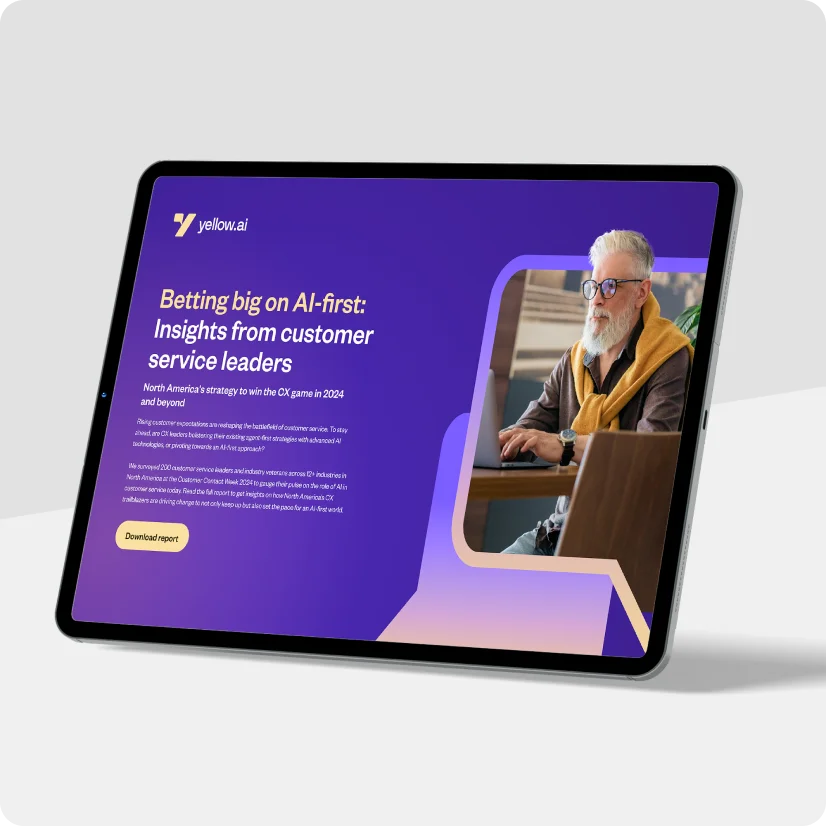On a day-to-day basis, employees may face multiple challenges that can prevent them from efficiently doing their job. To ensure that employees spend their time where it matters most, it’s important to identify and resolve these roadblocks, and that is exactly what we are going to discuss in this blog. Let’s have a look at the top 5 employee pain points and what you can do to fix these problems.
What is an employee pain point?
Employee pain points are specific problems faced by current or prospective employees in the workplace. Pain points include any problems that the employees may experience along their journey. Be it a noisy work environment, multiple meetings, emails, notifications, workload – the list goes on.
Research suggests that up to 73% of employees will jump ship if the employer doesn’t pay attention to their problems. This is why it’s important to identify and solve these problems at the right time and build processes that prevent any recurring issues.

Benefits of focusing on employee pain points
If you focus on employee problems, it will make them feel valued and improve their performance as well as job satisfaction. So, the bigger question is why does employee satisfaction matter?
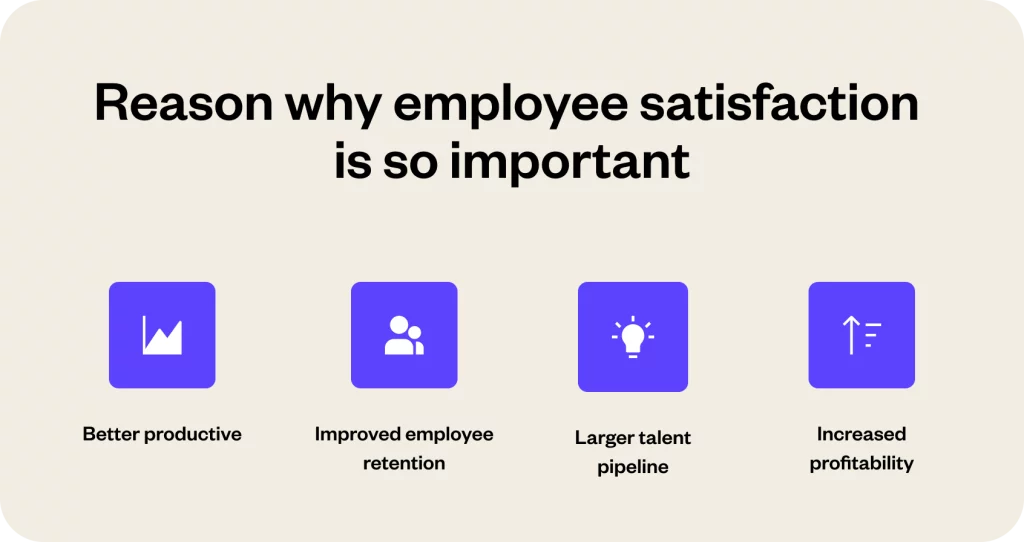
1. Better productivity
Happy and content employees are more inclined to work with a sense of purpose and enthusiasm for their company’s success.
2. Improved employee retention
People are naturally more willing to stay with a firm where they are happy.
3. Larger talent pipeline
From positive reviews to personal referrals, employee satisfaction will help you boost your brand’s reputation and attract talent.
4. Increased profitability
According to recent research, companies who invest extensively in three components of employee experience – culture, physical space and technology – make more than four times the average profit.
How to identify employee pain points?
Follow this step by step process to figure out what challenges your employees face on a daily basis.
Get everyone on board
Improving employee experience is not just the job of HR, it’s a collective effort of all the managers in an organization. This is why, when it comes to identifying the challenges faced by employees, everyone from CEO to HR and IT to finance must collaborate.
Ask and learn
Guesswork isn’t what will help you identify your employees’ pain points; you also need to listen to them. There are two primary methods for learning more about your employee experience – conducting a survey or having one-to-one conversations.
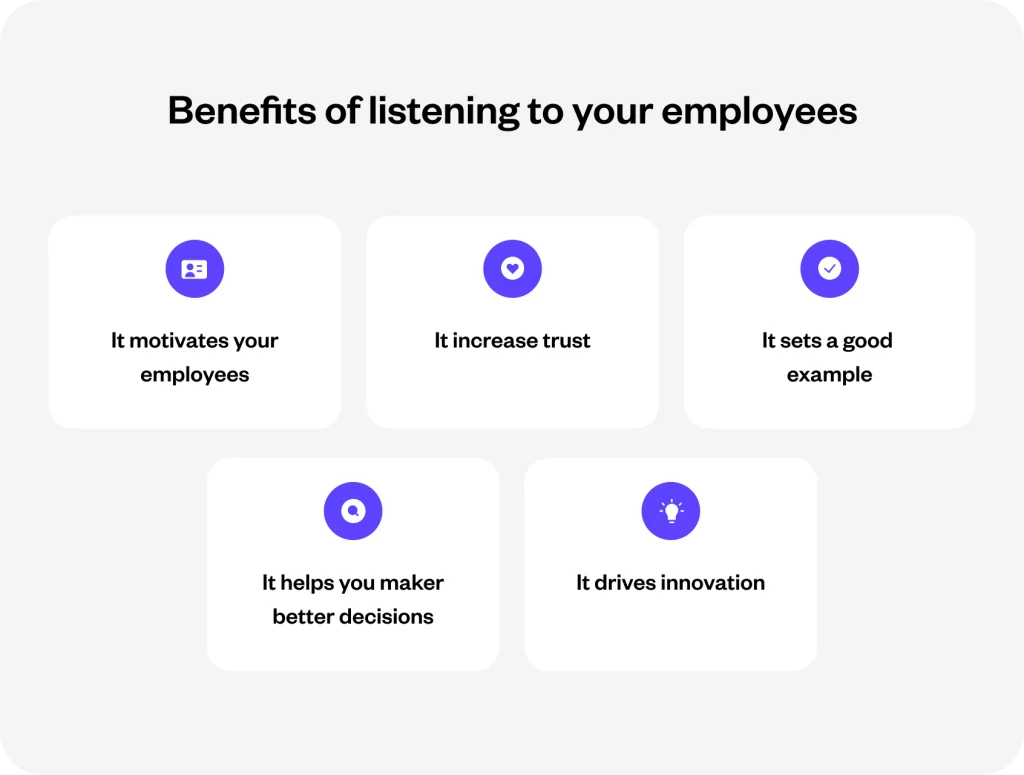
Sending out a questionnaire to fill can be a good place to start. It will give you access to measurable data while maintaining the anonymity of your employees. While qualitative results are useful, it’s also important to ask open-ended questions to get to the depth of things.
On the other hand, a private conversation with individual employees can make all the difference. It not only demonstrates that you care about making changes, but it also allows you to ask follow-up questions and delve deeper. Furthermore, this helps executives to get to know their employees on a more personal level, resulting in a more relaxed and trusting workplace.
Do your own research
It might be eye-opening to hear what prior employees have to say, in addition to learning about the issues of your current staff. Reading reviews on sites like Glassdoor and Indeed can reveal why people left, what they liked and disliked about working at your organization and how you can improve your workplace experience.
Take actions and continue improving
It may seem self-evident, but after surveying your staff and drafting your plan, you must take action. Keep in mind that offering free meals and ping pong tables isn’t enough—you need to address the bigger, underlying concerns.
It’s also critical to keep asking questions and listening to your employees, regardless of how many changes you make. Although you won’t be able to please everyone all of the time, employee satisfaction should always be a top priority. It will benefit your company’s culture, bottom line and overall success.
Top 5 employee pain points and how to overcome them?
1. Spending a lot of time on mundane tasks
Research shows that employees spend over 3 hours a day on tasks that can be easily automated. General data entry, which involves manually entering data into a computer or other devices, is at the top of the “hated task” list, followed by monitoring email traffic and filing digital items – such as documents, spreadsheets, photos or PDFs – into the appropriate digital folder.
By deploying a digital workforce and automating these repetitive tasks, employees can gain back a quarter of their annual work time to focus on more productive and meaningful work.
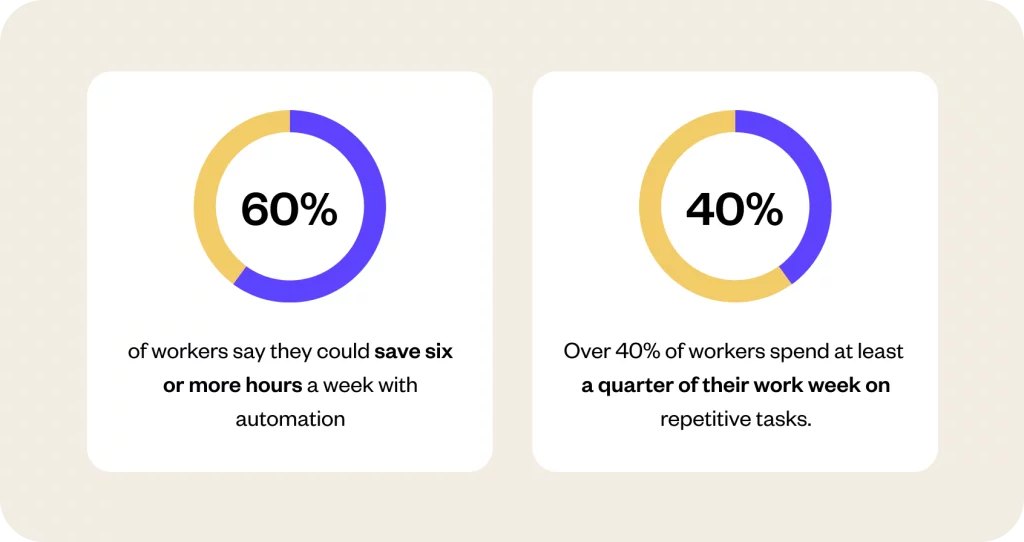
2. Managing tech silos in the workplace
A technology silo is a collection of apps and software that do not communicate with one another, preventing data from being easily accessed by other departments and/or apps.
For example, the marketing department may use one software for campaign management and the sales department may use another to store all of their data. If the two systems aren’t integrated, the marketing department won’t be able to personalize campaigns using data from the sales department and vice-versa.
Modern, low-code automation solutions can help teams break down tech silos by eliminating redundancies, centralizing control and managing APIs and more, all while making it easy to build dependable integrations that streamline data across various platforms.
3. Struggling with complex internal communication channels
Strong interpersonal relationships between team members and people in other departments help tasks and projects to flow more smoothly. However, internal communications today are distributed over various platforms like email, Slack and WhatsApp which can make keeping track of messages a bit challenging.
However, more often than not, employee queries are urgent in nature. If not replied promptly, it can even lead to dissatisfaction, errors and failures.
With the help of an HR bot, employees can get answers to their problems in real-time, on their preferred channel. The HR bot can also help employees raise an HR or IT ticket and transfer it to the concerned executive. This way no question gets left unanswered and employee satisfaction remains intact.
4. Getting timely leave approvals
Leave approval is a cumbersome procedure as it involves checking the leave balance of an employee and ensuring that the company leave policy is being followed. The last thing that your employees want is to log in to the leave application portal, click multiple times to apply for leave and worse still, send multiple reminders to their very busy boss to approve the leave.
HR bots integrated with your existing PTO software can simplify this process by enabling employees to apply for leave and check leave balances, right from the chat interface. It then sends the leave request to the reporting manager and gets back with an approval in real-time.
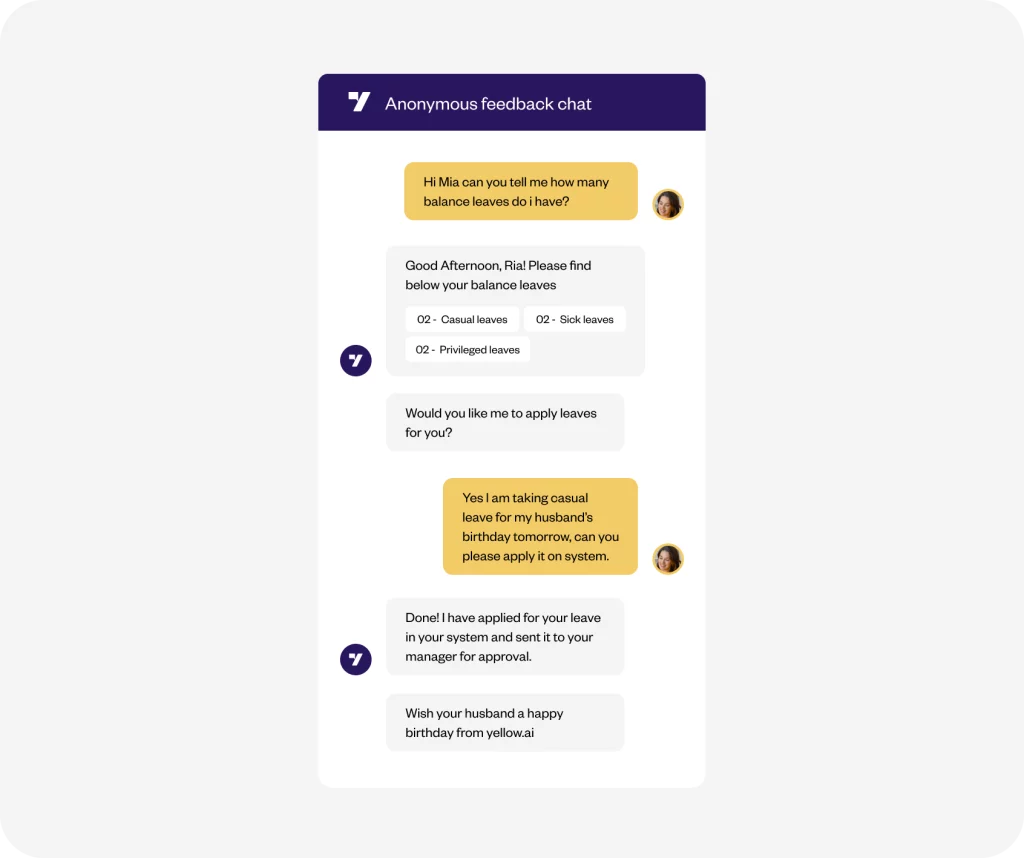
5. Obtaining payslips in time
The payroll slip is the ideal document to track the income, expenditure and all the deductions an employee goes through at a stipulated point of time. It also helps in filing income tax returns as well as applying for loans and mortgages.
A lot of times employees might not keep a record of their past payslips and not find them when needed. Getting past salary slips for HR can be a time-consuming process, since they already have a lot on their plate.
This is where HR automation can come in handy. By integrating a bot with your company’s HRMS, you can help employees get access to important documents and information in a timely manner. On receiving a query, the bot will automatically retrieve relevant information from the company’s database and give it to the employee in real-time.
To sum up
When it comes to identifying and resolving employee pain points, it all boils down to how keen you are to listen to your employees. Listening to your employees, either by conducting surveys or personal interviews can help you get to the root of problems and solve them before they cause any operational tumult.
AI-powered automation can play a huge role in optimizing employee experiences and overcoming various challenges that they face on a daily basis. Whether it’s about removing redundancy from the workflows or enabling self-service, HR bots can help you enrich and elevate employee delight.
Learn more about how HR bots can make your employees’ lives easier. Talk to our experts.

























